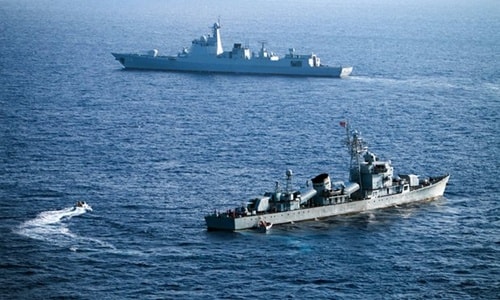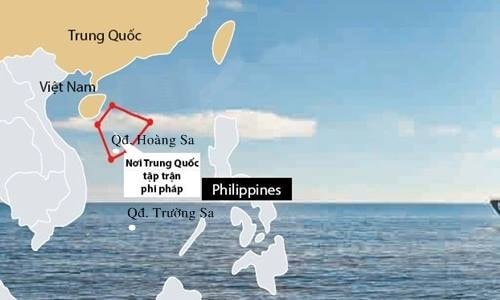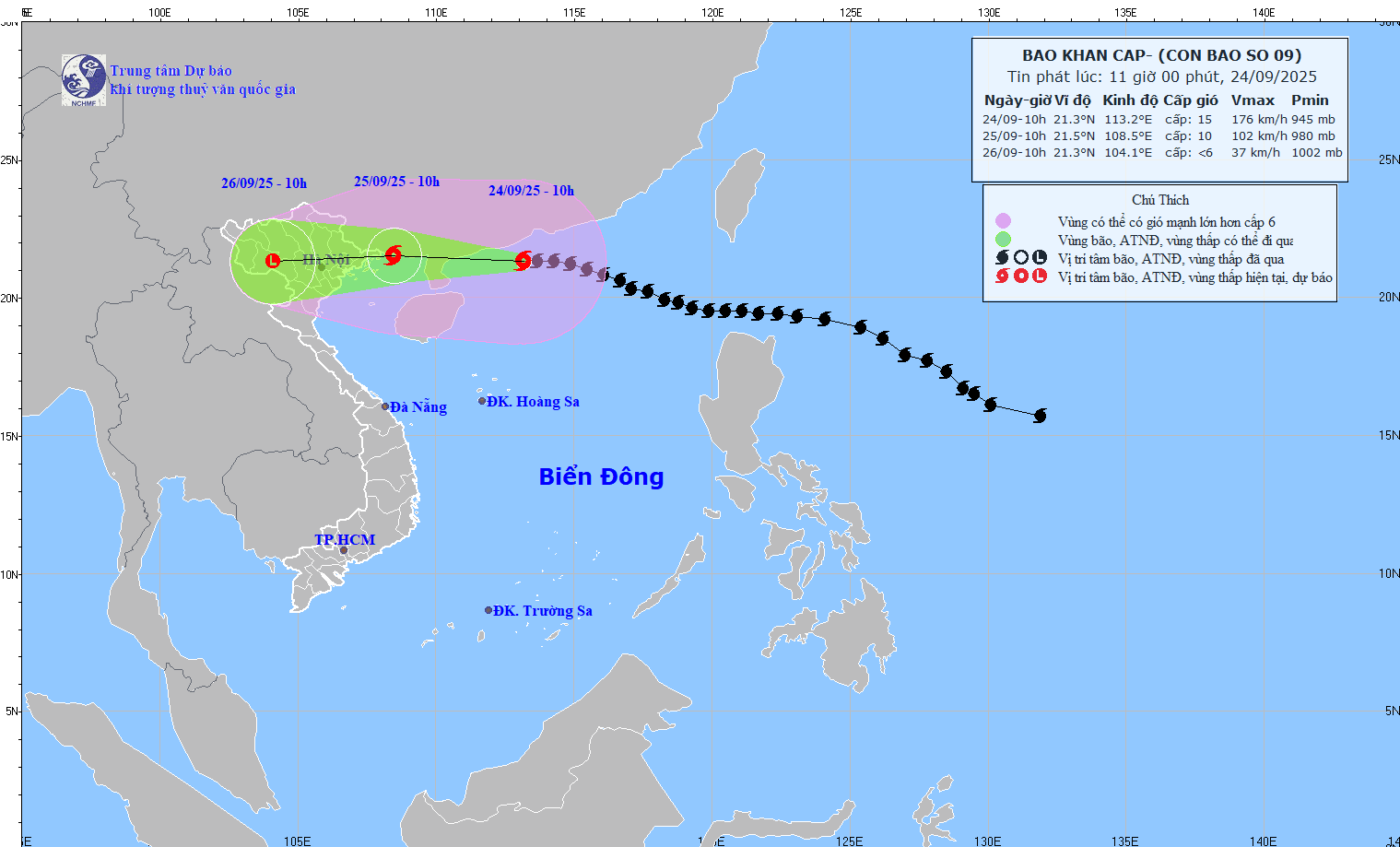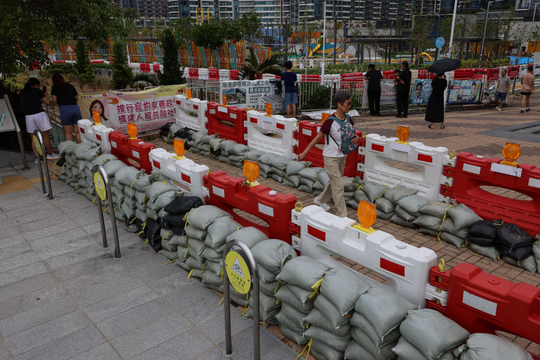China may push itself into a dead end after the South China Sea ruling
The stubborn arguments only put China in a corner after the international arbitration court issued its ruling on the East Sea lawsuit.
 |
| Chinese naval ships operating in the East Sea. Photo: AFP |
On July 12, the UN-sponsored international arbitration court in The Hague, Netherlands, will issue its final ruling on the Philippines’ South China Sea lawsuit against China. Experts say the ruling will likely favor the Philippines, forcing China into a corner, causing it to increase its aggressive moves in the South China Sea, according to Week magazine.
In 2009, Beijing submitted to the United Nations a vague map consisting of nine dashes, covering most of the East Sea, overlapping the waters of neighboring countries such as Vietnam, the Philippines, Brunei... Based on this "nine-dash line" which has no legal basis, China has always said that it has so-called "historical sovereignty" over most of the East Sea.
The Philippines argues that China’s claims violate the United Nations Convention on the Law of the Sea (UNCLOS), which limits Manila’s ability to exploit resources and fish in its exclusive economic zone. The Philippines filed a case against China in 2013 before an arbitration tribunal. The tribunal ruled in 2015 that it had jurisdiction over the case.
Meanwhile, China has insisted that it does not accept the lawsuit and refuses to participate in the process.
According to commentator Kyle Mizokami from Week, China is pushing itself into a dead end with its stubborn arguments and uncooperative attitude. Despite conducting a series of lobbying campaigns to attract support from many countries around the world, China's ability to convince public opinion is very small because the evidence it has presented to defend its sovereignty claim in the East Sea is really weak.
China now faces two choices: "Shamefully" withdrawing its unreasonable sovereignty claims or becoming a "hypocrite" who selectively complies with international treaties and agreements, Mr. Mizokami assessed. This would certainly be a heavy defeat, and China knows it well. The clearest evidence is shown by Beijing's aggressively spreading the word that it will not accept the arbitration court's ruling.
Some analysts fear that after the court's ruling, China will take more serious aggressive actions because it will be humiliated before the international community.
Using military force could be an option for China, Mizokami said. China’s Maritime Safety Administration announced on July 3 that the country will conduct exercises from July 5 to 11 with a scope covering Vietnam’s Hoang Sa archipelago.
China will deploy many main warships in the above illegal exercise, including missile destroyer No. 115 of the North Sea Fleet, missile destroyer No. 139, missile frigate No. 595 of the East Sea Fleet. The South Sea Fleet will participate with many warships, fighter jets, helicopters, the specific number of which has not been announced. In addition, Beijing has also brazenly established a no-go zone at sea of more than 60,000 km.
 |
| China's illegal military exercise area. Graphics: Takungpao |
The fact that the exercise ended just a day before the tribunal’s ruling was no coincidence, Mr. Mizokami commented. China will be sending a series of military assets to the doorsteps of countries affected by the “nine-dash line” claim. This seems to be a message full of challenge and deterrence.
Observers believe that China could also send warships to patrol the entire "nine-dash line" area, especially the areas claimed by the Philippines, as a way to show its refusal to accept the ruling from the arbitration court.
According to Mizokami, such aggressive actions will be a heavy blow, seriously damaging China's image and reputation in the eyes of the international community. All international agreements that Beijing signs will also be doubted by the world in terms of reliability.
Next week, modern Chinese history will reach a turning point. Ideally, Beijing could choose to comply with the tribunal’s ruling and withdraw its “nine-dash line” claim. But it could also stubbornly cling to what it has long pursued, even though it runs counter to international norms and law. “A major power seeking global leadership has only one choice,” Mr. Mizokami stressed.
According to VNE
| RELATED NEWS |
|---|








